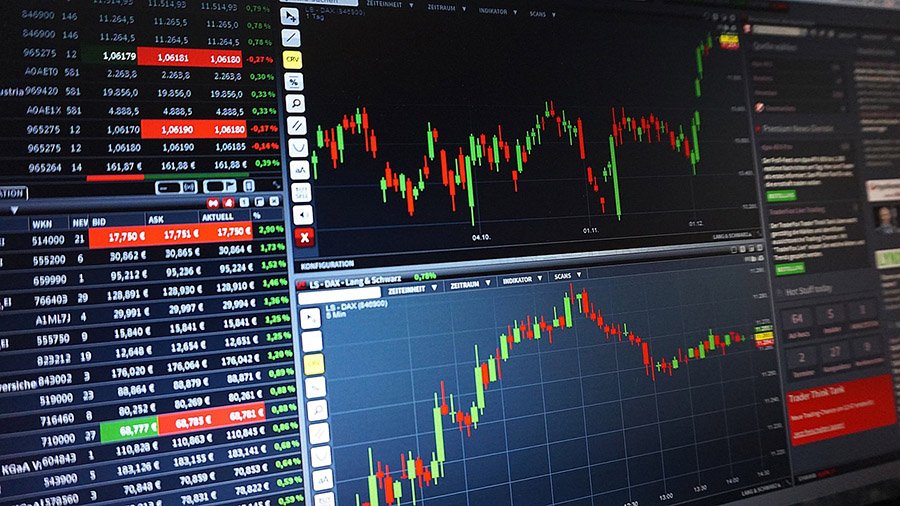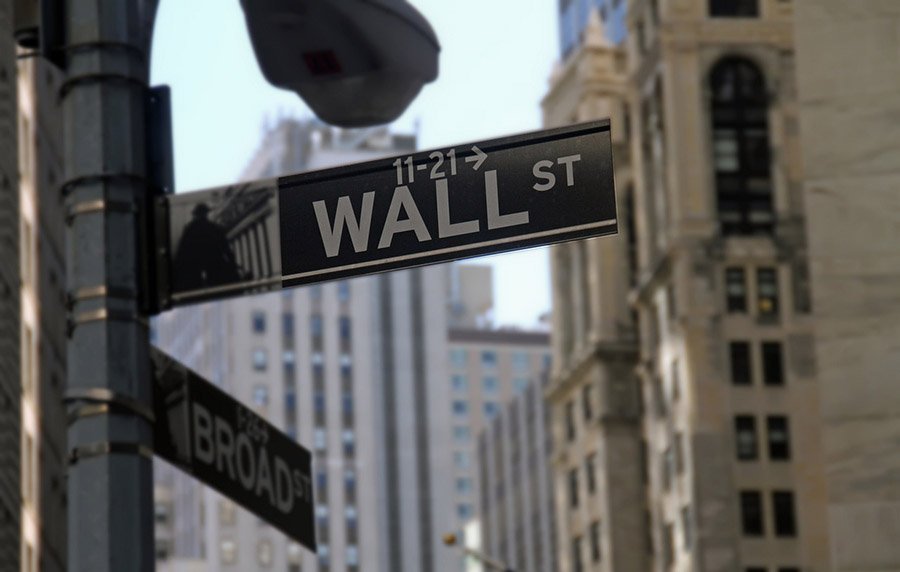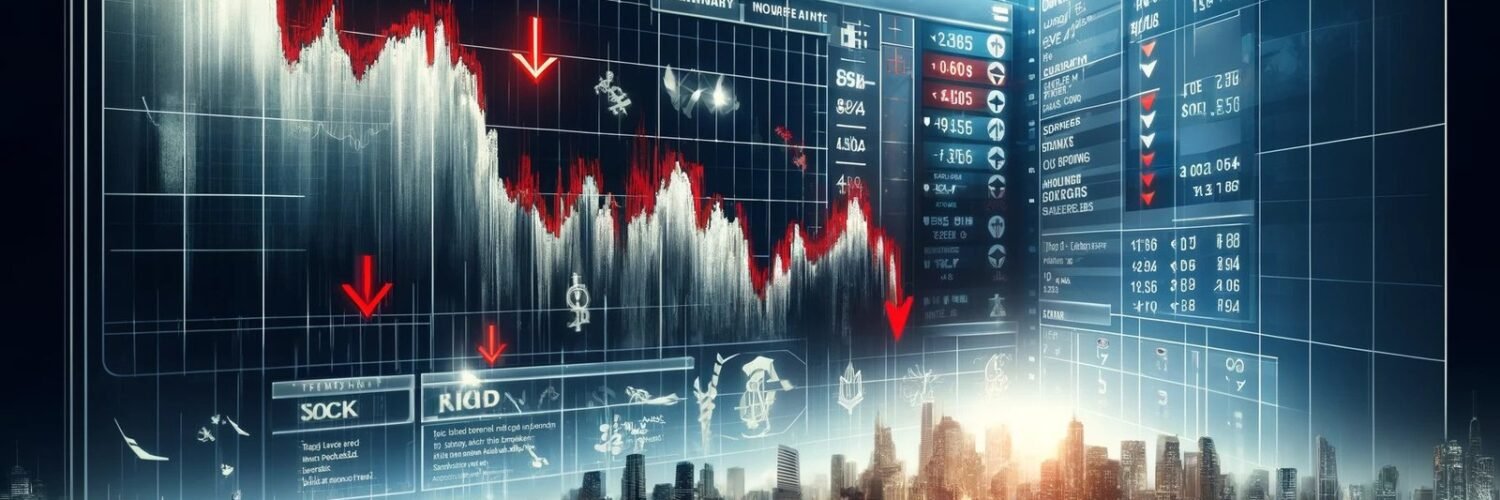The US stock market experienced a jolt following a significant sell-off linked to hedge fund Archegos Capital. This unexpected event caused major US stock indices to drop as investors braced for potential ripple effects. The abrupt selling spree was traced to Archegos, the family office of Bill Hwang, a former trader at Tiger Management. The hedge fund’s rapid liquidation shook market confidence, leading to uncertainty and volatility.
Impact on US Stock Markets
The sell-off had an immediate impact on the US stock market, with key indices indicating a lower opening. Futures on the Dow Jones, S&P 500, and Nasdaq fell between 0.4% and 0.6%, pointing to a rough start for US markets.
This downturn was fueled by the forced liquidation of Archegos’ positions, which led to a cascade of stock price declines. Among the most affected were ViacomCBS and Discovery, both experiencing their largest-ever daily drops, with more than a 27% decrease.
The repercussions of this hedge fund-induced turmoil extended beyond specific stocks, affecting broader market sentiment. The Wall Street VIX Index, commonly known as the “fear gauge,” rose by 10%, signaling increased market volatility and heightened nervousness among investors. This spike in the VIX Index reflected growing concerns about the stability of the markets and the potential for further disruptions.
The Story Behind Archegos Capital
Archegos Capital is a hedge fund and family office run by Bill Hwang, a South Korean billionaire and former trader at Tiger Management. Archegos employed a long-short equity strategy, a common approach in hedge fund management where firms take long positions on certain stocks and short positions on others to balance market exposure. However, this strategy can lead to significant risks if long positions lose value while shorts don’t offset the loss.
Archegos’ troubles began when its brokers, including major players like Goldman Sachs and Morgan Stanley, issued margin calls due to a substantial decline in the value of the fund’s holdings.
The hedge fund could not meet these margin calls, triggering a chain reaction of forced selling by the brokers to mitigate their losses. This massive sell-off, reportedly totaling $30 billion, involved Archegos’ large positions in Chinese and US stocks, leading to widespread market turbulence.

The Ripple Effect on Global Markets
The dramatic sell-off triggered by Archegos Capital had far-reaching consequences, extending well beyond US stock markets. In Europe, major indices experienced mixed responses. The UK’s FTSE 100 fell by 0.4%, indicating a downturn influenced by the instability in US markets.
Conversely, the Euro Stoxx 50 and Germany’s DAX showed slight gains, with increases of 0.1% and 0.2%, respectively. This disparity suggested a degree of resilience in some European markets despite the chaos originating from the US.
Asian equities largely held steady despite the forced liquidations on Wall Street. China’s Shanghai Composite Index rose by 0.5%, Japan’s Nikkei increased by 0.7%, and Hong Kong’s Hang Seng remained relatively flat.
The relative calm in Asian markets was potentially influenced by the successful refloating of the Ever Given container ship in the Suez Canal, which had been obstructing a major shipping passage for nearly a week. The ship’s release offered some relief to global trade, potentially mitigating the impact of the Archegos sell-off in Asian markets.
The refloating of the container ship also had an immediate effect on oil prices. Brent crude futures fell by 0.6% to $63.99, and West Texas Intermediate dropped by 1.2% to $60.27, reflecting reduced concerns about oil supply disruptions due to the canal blockage.
Banking Sector’s Response to the Archegos Incident
The fallout from the Archegos Capital incident hit the banking sector hard, particularly the banks and brokerages involved in the hedge fund’s margin calls. Nomura and Credit Suisse, two major institutions with significant exposure to Archegos’ positions, warned of large losses following the fire-sale of the hedge fund’s assets.
Nomura, a prominent Japanese investment bank, saw its stock plummet by 16% following its announcement of substantial losses linked to the Archegos liquidation. Credit Suisse, a Swiss bank with extensive global operations, experienced a 9.5% decline in its share price due to its exposure to the hedge fund’s positions. Other European banks, such as Deutsche Bank and UBS, also felt the impact, with their stock prices dropping by 5% and 4%, respectively.
The sudden and severe losses incurred by these banks raised questions about their risk management practices and the broader stability of the financial system. The margin calls and subsequent forced selling by Archegos’ brokers underscored the interconnectedness of global financial markets and the risks associated with hedge fund strategies that rely heavily on leverage and complex derivatives.

Market Sentiment and Upcoming Events
The shockwaves from the Archegos Capital sell-off unsettled market sentiment, with traders and analysts scrutinizing the incident’s broader implications. The notable rise in the Wall Street VIX Index, also known as the “fear gauge,” underscored the elevated level of market volatility, reaching 20.78 after climbing 10%.
This increase reflected a heightened sense of uncertainty among investors, who were now concerned about potential repercussions from the margin call-triggered fire-sale and the stability of major banks.
Analysts and traders expressed mixed reactions, with some anticipating further volatility in the coming days as markets adjusted to the new reality. Others were optimistic that the market could rebound once the forced selling subsided.
Amid this backdrop, market participants were also looking ahead to President Joe Biden’s upcoming speech on Wednesday, where he was expected to unveil his new $3 trillion infrastructure plan as part of his “Build Back Better” agenda.
This announcement could significantly influence market sentiment and potentially offset the negative effects of the Archegos incident by signaling substantial government investment in the US economy.
Ongoing Concerns and Outlook
Beyond the immediate impact of the Archegos incident, ongoing concerns about the COVID-19 pandemic and its potential impact on economic activity continued to weigh on market outlooks. Europe faced rising numbers of COVID-19 cases, with new variants driving a potential third wave. This trend raised fears of further restrictions and curbs on economic activity, particularly in regions with already strained healthcare systems.
Germany’s Chancellor Angela Merkel indicated her willingness to take federal control of the pandemic response, demonstrating the seriousness of the situation. In the UK, where lockdown restrictions had eased slightly, the market response was cautious, with groups of up to six people now allowed to meet outdoors. This slow and measured approach to reopening suggested that European markets could experience a prolonged period of uncertainty due to COVID-19-related challenges.
Despite the upheaval from the Archegos sell-off and pandemic concerns, some positive developments emerged. The refloating of the Ever Given container ship in the Suez Canal alleviated some pressure on global trade routes, providing a sense of relief to markets dependent on these shipping passages. This event underscored the interconnected nature of global trade and its sensitivity to disruptions.
Overall, the markets faced a complex mix of factors that could shape their trajectory in the coming days, with volatility likely to persist as investors monitored developments related to Archegos, COVID-19, and broader economic policies.








Add comment